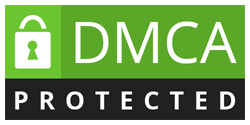Management Decision Models
Assignment 1: Discussion—The Power of Groups
Groups may be both a boon (for example, they statistically outperform individuals) and a bane (for example, they take too long) of decision making. While they can systematically outperform individuals, groups are also prey to systematic bias and organizational skewing.
Consider the systematic decision-making processes of your own organization. Using the readings for this module, the Argosy University online library resources, and the Internet, respond to the following:
- What are the group decision-making processes and structures in place at your current or with a previous employer that were designed to eliminate bias, create structure, and cultivate consistently better decisions?
- Were the processes successful? Why, or why not?
- How may the structure have facilitated organizational skewing?
- Write your initial response in 300–500 words. Your response should be thorough and address all components of the discussion question in detail, include citations of all sources, where needed, according to the APA Style, and demonstrate accurate spelling, grammar, and punctuation
- ________________________________________________________________
Assignment 2: Expected Value and Consumer Choices
Consumers’ choices are prey to subtle discrepancies that arise in cognitive accounting. Learning how and when you are prey to these discrepancies is an important step in improving your decision making.
As the readings for this module demonstrate, people value gains and losses differently under different scenarios. For example, contestants in a game show might choose a guaranteed $10 prize over a 50 percent chance of winning $20 despite the fact that the expected values are the same.
Using the readings for this module, the Argosy University online library resources, and the Internet, address the following:
- What is mental accounting and how does it impact consumer decision making?
- How might a company take advantage of consumers’ mental accounting? Give examples.
- As a marketer, how might you frame certain decisions to benefit from the disparities that arise in one’s cognitive accounting?
- As a consumer, how would you avoid the pitfalls posed by the inequalities of one’s cognitive accounting?
Write a 3–5-page paper in Word format. Apply APA standards to citation of sources. Use the following file naming convention: LastnameFirstInitial_M4_A2.doc.




